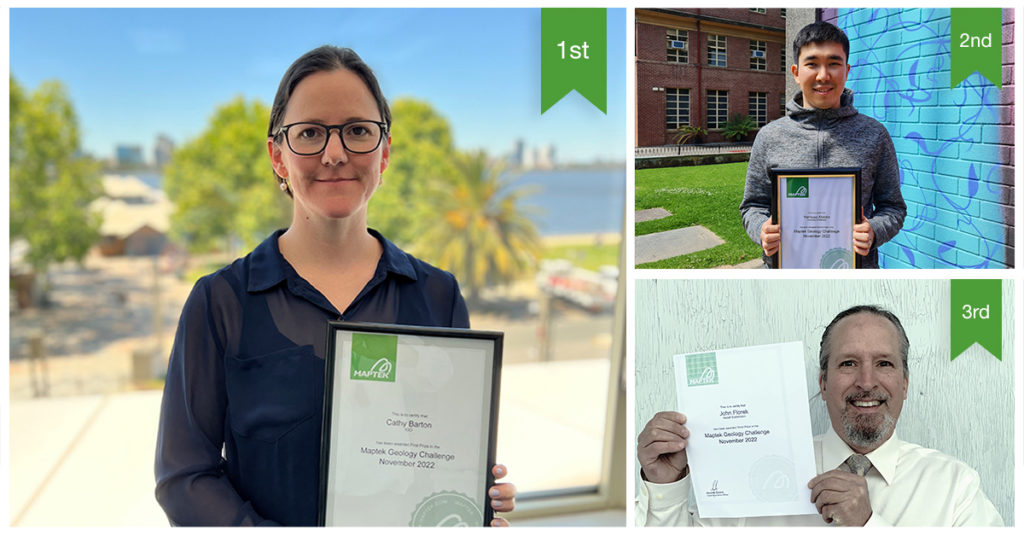The Maptek challenge provides entrants with access to Vulcan GeologyCore and DomainMCF software, with unlimited machine learning cloud computing access across one week, to come up with novel ways of maximising project value.
Barton, who won a batch of DomainMCF hours for her company alongside a personal prize, said finding a simple solution in DomainMCF made it practical to produce alternatives quickly, boosting confidence in existing models and highlighting areas needing review.
Barton described her data as ‘distressingly real’, comprising 1885 diamond holes drilled from surface and underground in widely varying orientations and directions by multiple owners over 30 years. Drillhole spacing ranged from 100 metres with no sign of economic mineralisation to 15 metres in some mineralised areas.
With domains categorised and data validated, the job was submitted to DomainMCF using the lithological grouping as the domain and six elements to estimate grade trends.
Within 30 minutes and 45 seconds DomainMCF produced an alternative geological model that honoured the drilling data and correlated well with the implicit model.
Barton said she plans to use the DomainMCF machine learning hours to help review several different resources.
Second and third prizes
Yerniyaz Abildin, University of Adelaide postgraduate researcher won second prize for a study that compared explicit, implicit and geostatistical modelling with the machine learning approach.
Third prize was awarded to John Florek, Principal of Apical Exploration, who ran DomainMCF on a series of diamond drillholes for a high-grade gold deposit, to see whether incorporating different geological trends and categorising them as a domain variable gives more geological control over the model.

